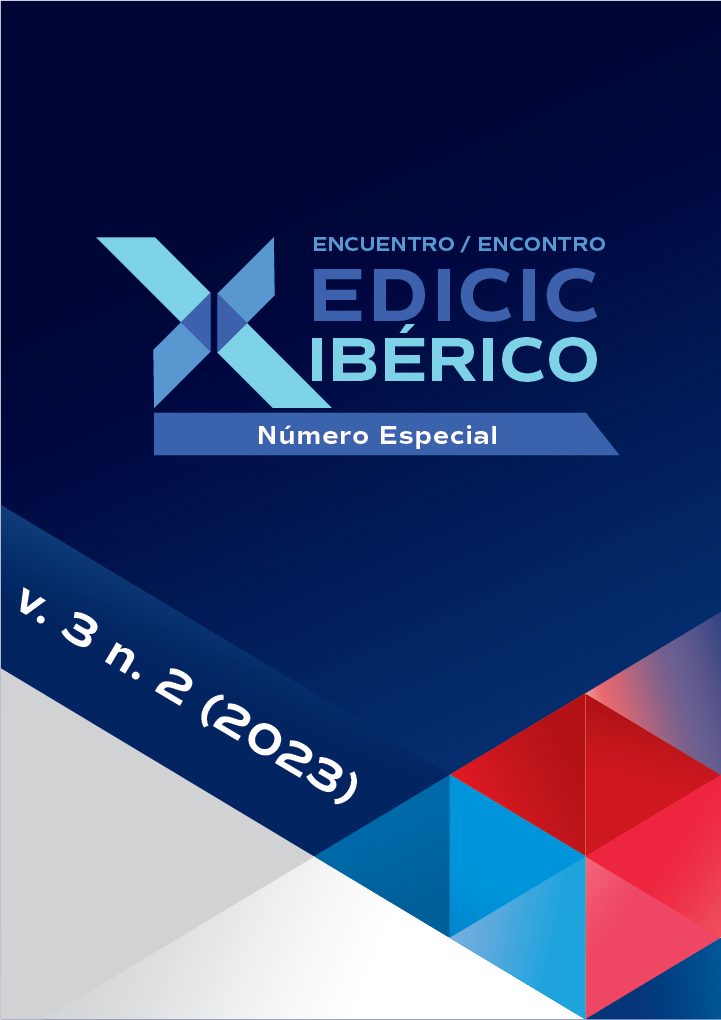The pragmatic relationship between domain and documentation in information representation
DOI:
https://doi.org/10.62758/re.v3i2.221Keywords:
Domain’s Analysis, Pragmatics, Information Retrieval, Ethnographic-Pragmatic, Information RepresentationAbstract
In attempt to understand how certain groups and specialized fields use language for information retrieval, domain analysis is proposed to be essential in getting to know the context, information needs, how this information is used, how this community communicates, the structure of discourses, enabling the organization and retrieval of knowledge and information in a pragmatic way. Thus, the goal is to theoretically analyze the notion of domain analysis in the information representation process, explored from the perspective of pragmatics theories, specifically concerning the sense effects resulting from speech acts. The current research is characterized as qualitative, bibliographic, and interdisciplinary in the critical execution of the analyses. Domain analysis demonstrates that the language of organization and representation adapts to the context and discursive community, therefore, the production sense effect for dialogue among peers is achieved through linguistic-pragmatic foundations. The foundation of the new approach to domain analysis, referred to as ethnographic-pragmatic, is precisely an understanding of the principles and role of pragmatic studies.
References
Almeida, C. C. (2021.). Epistemologia da organização do conhecimento: um novo velho paradigma. In Silva, C. G.,Revez, J., & Corujo, L. (coord.) Organização do conhecimento no Horizonte 2030: Desenvolvimento sustentável e saúde. Atas do V Congresso ISKO Espanha-Portugal (pp.663-680).
Almeida, J. F. V. R., & Días, G. A. (2019). Estado da arte sobre análise de domínio no campo da Ciência da Informação brasileira. Brazilian Journal of Information Sctudies: Research Trends, 13(3), 26-45. DOI: https://doi.org/10.36311/1981-1640.2019.v13n3.04.p26
Armengaud, F. (2006). A pragmática. Trad. Marcos Marcionilo. São Paulo: Parábola Editorial.
Dias, C. D. C. (2015). A análise de domínio, as comunidades discursivas, a garantia de literatura e outras garantias. Informação & Sociedade: Estudos, 25(2) (2015), 7-17.
Guimarães, J. A. C., & Tognoli, N. B. (2015). Provenance as a Domain Analysis Approach in Archival Knowledge Organization. Knowledge Organization, 42(8), 562- 669. DOI: https://doi.org/10.5771/0943-7444-2015-8-562
Hjørland, B., & Albrechtsen, H. (1995). Toward a new horizon in Information Science: domain-analysis. Journal of the American Society for Information Science, 46(6), 400-425. DOI: https://doi.org/10.1002/(SICI)1097-4571(199507)46:6<400::AID-ASI2>3.0.CO;2-Y
Hjørland, B. (2002). Domain analysis in information science: eleven approaches–traditional as well as innovative. Journal of documentation, 58(4), 422-462. DOI: https://doi.org/10.1108/00220410210431136
Kobashi, N. Y., & Fernandes, J. C. (2009). Pragmática linguística e organização da informação.
Kobashi, N. Y. (2007). Fundamentos semânticos e pragmáticos da construção de instrumentos de representação de informação. DataGramaZero-Revista de Ciência da Informação, 8(6).
Levinson, S. C. (2007). Pragmática. Trad. Luís Carlos Borges & Aníbal Mari. São Paulo: Martins Fontes.
Mota, D. A. R., & Kobashi, N. Y. (2016). Web semântica e web pragmática: discussão crítica sobre versionamento na web e limites conceituais. Tendências da Pesquisa Brasileira em Ciência da Informação, 9(2).
Novellino, M. S. F. (1998). A linguagem como meio de representação ou de comunicação da informação. Perspectivas em ciência da informação, 3(2).
Oliveira, M. A. (2015). Reviravolta linguístico-pragmática na filosofia contemporânea. 4ª.ed. São Paulo: Edições Loyola Jesuítas.
Saracevic, T. (1996). Ciência da informação: origem, evolução e relações. Perspectivas em ciência da informação, 1(1).
Tennis, J. (2012). Com o que uma análise de domínio se parece no tocante a sua forma, função e gênero?. Brazilian Journal of Information Science, 6(1), 3-15.
Tennis, J. (2003). Two axes of domains for domain analysis. Knowledge organization, 30(3/4), 191-195.
Weiss, L. C., & Bräscher, M. (2014). Pragmática na organização do conhecimento. Anais do Encontro Nacional de Pesquisa em Ciência da Informação.
Downloads
Published
How to Cite
Issue
Section
License
Copyright (c) 2023 Revista EDICIC

This work is licensed under a Creative Commons Attribution 4.0 International License.
The Association holds the copyright of the texts it publishes and, therefore, adopts a Creative Commons License, CC BY 4.0 DEED Attribution 4.0 International (https://creativecommons.org/
You are free to:
- Share: copy and redistribute the material in any medium or format for any purpose, even commercially.
- Adapt: remix, transform, and build upon the material for any purpose, even commercially.






